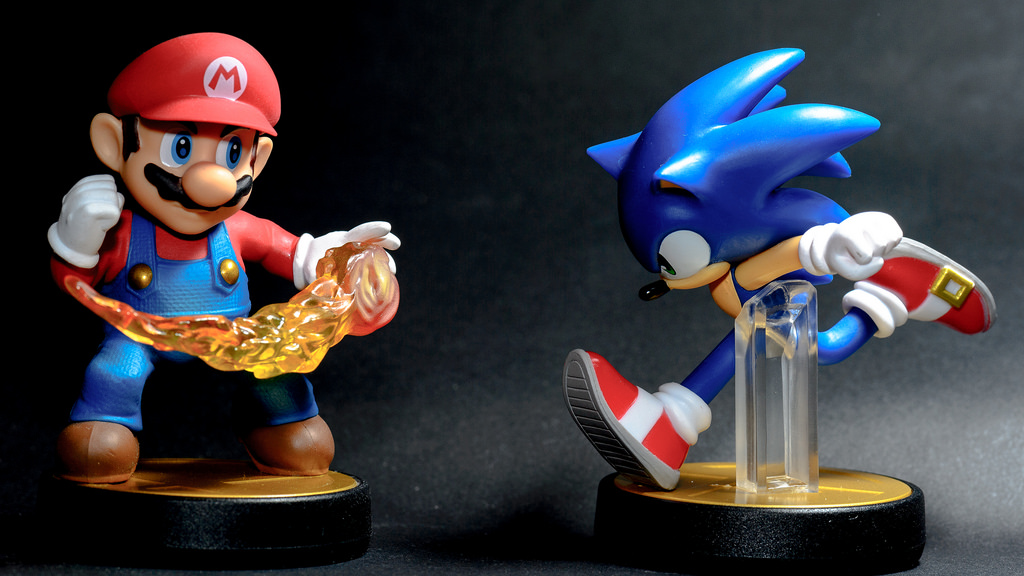
If you grew up playing video games in the 90s, chances are you wanted a specific game console for one reason: it had one or two games that the other console didn’t.
Those of us who wanted to play Sonic the Hedgehog went with a Sega Genesis, while those looking to explore Super Mario World’s many stages wrote “Super Nintendo” on their Christmas list.
The rivalry between Sonic and Mario was, perhaps, the greatest example of how much power an exclusive game can have on helping us decide which console to buy.
We have certainly had plenty of influential exclusives on various consoles since then. It is difficult to say where Xbox would be without Halo and Fable, or if PlayStation would be a household name today without Final Fantasy and Metal Gear Solid. However, it certainly feels as though exclusives no longer play as big a role as they once did.
One reason is due to how big third-party development has grown. Here’s a look at the ten bestselling games of 2014 provided by Forbes:
- Call of Duty: Advanced Warfare
- Madden NFL 15
- Destiny
- Grand Theft Auto 5
- Minecraft
- Super Smash Bros (for 3DS and Wii U)
- NBA 2K15
- Watch Dogs
- FIFA 15
- Call of Duty Ghosts
Although this list doesn’t take into account digital-only titles like Hearthstone, it’s still an interesting portrayal of where the industry stands. Notice how every single one of these titles is available on more than one console? With the exception of Super Smash Bros, which is only available on Nintendo devices, none of these are exclusive to PC or a Microsoft, Sony, or Nintendo video game console.
One could say that the list makes sense, since the more platforms on which a game is made available, the more units it is likely to sell. This is why Call of Duty, which released on every major console, is able to sell many more units than Mario Kart 8.
Still, you would think that the system with the most 1st party titles, in this case the Wii U, would sell the most.
The Wii U blows away the PlayStation 4 and the Xbox One in terms of big-budget exclusives. Not only that, almost all of these exclusive games have been very well received and hold impressive review scores across the board. This includes Super Smash Bros, Super Mario 3D World, Pikmin 3, Bayonetta 2, and Donkey Kong Country: Tropical Freeze (just to name a few).
On the other hand, PS4 and Xbox One exclusives have been few and far between, and sometimes disappointing. Halo: The Master Chief Collection released with problems that made multiplayer unplayable for a large number of people. All while The Order: 1886 failed to meet expectations and suffered plenty of negative reactions across the internet.
Despite all this, it’s the PlayStation 4 that is currently dominating in hardware sales. The question is: will this continue even though Uncharted 4 has been delayed until 2016, leaving very few non-indie exclusives for 2015? Meanwhile, even though Xbox One’s only notable exclusives are Halo 5 and Rise of the Tomb Raider, chances are it will continue outselling the Wii U, the system with the most exclusives.
So, do exclusives still matter? Certainly.
Even though most of the big third-party titles release on both Microsoft and Sony’s consoles, games that only appear on one device still play a significant role in driving us toward a certain platform.
That being said, it is not nearly as significant as the old days, when exclusive games were the major selling point. It would be hard to argue that it is 1st party games that are solely responsible for driving sales when the system with the most (and highest-rated) exclusives is third place in the race.
[su_note]Learn to make your dream video game into reality at the School of Game Design at the New York Film Academy. Campuses in New York and Los Angeles.[/su_note]
